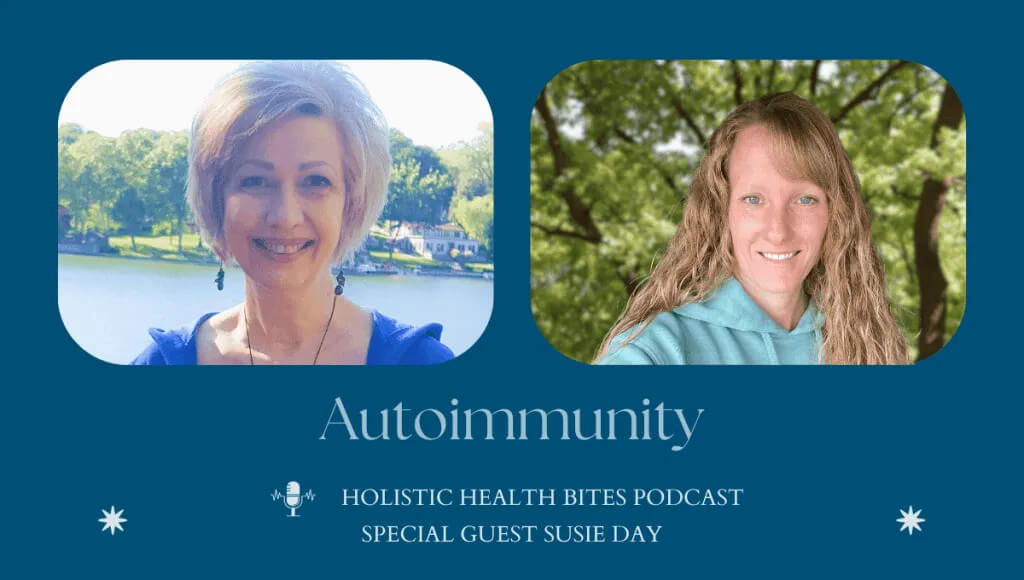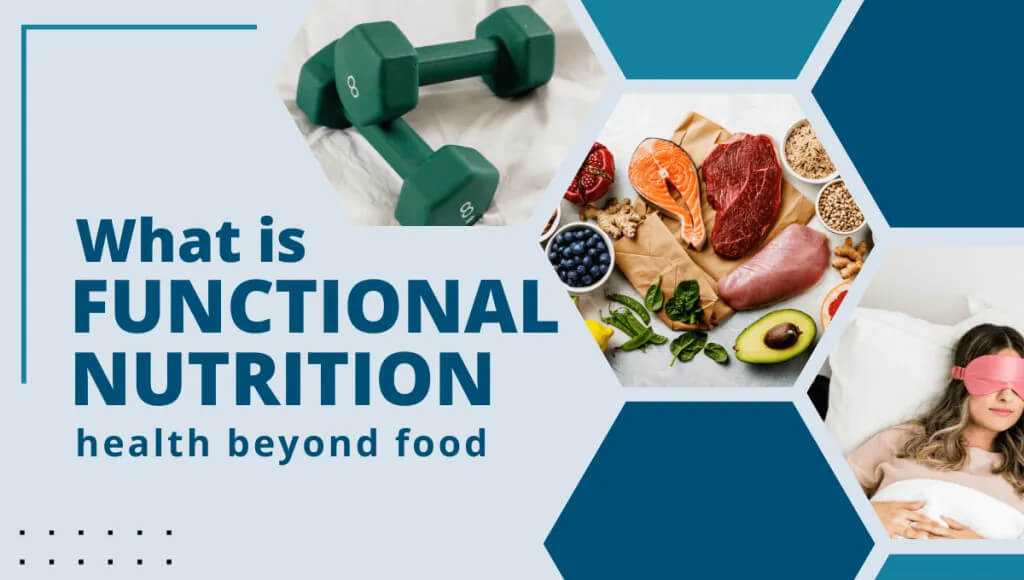 Discover holistic approaches to managing autoimmunity in this engaging conversation between Andrea and Susie Day on the latest episode of the Holistic Health Bites podcast. Susie shares her personal journey with rheumatoid arthritis and how making dietary changes, practicing mindfulness, and incorporating energy medicine and essential oils have transformed her health and well-being. Learn about the benefits of cutting out certain foods, finding suitable replacements, and embracing a healthy lifestyle to effectively manage chronic conditions. Don't miss out on Susie's favorite essential oil blends for calming, pain relief, and boosting energy. Connect with Susie and explore her Autoimmune Relief Bundle and Blooming In Midlife Autoimmune Re-Balance Blog for more helpful resources.
Discover holistic approaches to managing autoimmunity in this engaging conversation between Andrea and Susie Day on the latest episode of the Holistic Health Bites podcast. Susie shares her personal journey with rheumatoid arthritis and how making dietary changes, practicing mindfulness, and incorporating energy medicine and essential oils have transformed her health and well-being. Learn about the benefits of cutting out certain foods, finding suitable replacements, and embracing a healthy lifestyle to effectively manage chronic conditions. Don't miss out on Susie's favorite essential oil blends for calming, pain relief, and boosting energy. Connect with Susie and explore her Autoimmune Relief Bundle and Blooming In Midlife Autoimmune Re-Balance Blog for more helpful resources. In a recent episode of The Begin Within Health Show with Nate Sleger, functional nutritionist Andrea Nicholson discusses the important gut-brain connection and how it impacts overall wellness and mental health. They also delve into the significance of digestive and metabolic health, emphasizing the need to investigate and address root causes early on. Using her three phase approach to Functional Health, Nicholson emphasizes the importance of thorough investigation, personalized protocols, and establishing lifestyle habits that cater to individual needs in order to achieve and maintain long-term health and vitality. To listen to the full episode and access more episodes of The Begin Within Health Show, visit their website.
In a recent episode of The Begin Within Health Show with Nate Sleger, functional nutritionist Andrea Nicholson discusses the important gut-brain connection and how it impacts overall wellness and mental health. They also delve into the significance of digestive and metabolic health, emphasizing the need to investigate and address root causes early on. Using her three phase approach to Functional Health, Nicholson emphasizes the importance of thorough investigation, personalized protocols, and establishing lifestyle habits that cater to individual needs in order to achieve and maintain long-term health and vitality. To listen to the full episode and access more episodes of The Begin Within Health Show, visit their website. Carb cycling is a strategy that can help with weight and fat loss without cutting calories or permanently eliminating carbs. It allows for a wide variety of foods while still benefiting metabolic health. Carbs are often thought of as our primary fuel source, but our bodies can also run on fat under the right conditions. Studies have shown that our body's preferred fuel is fat, as it provides stable energy for longer periods of time compared to glucose. Cycling through higher and lower carb days can help lower overall glucose and insulin levels, making you less hungry and aiding in weight and fat loss.
Carb cycling is a strategy that can help with weight and fat loss without cutting calories or permanently eliminating carbs. It allows for a wide variety of foods while still benefiting metabolic health. Carbs are often thought of as our primary fuel source, but our bodies can also run on fat under the right conditions. Studies have shown that our body's preferred fuel is fat, as it provides stable energy for longer periods of time compared to glucose. Cycling through higher and lower carb days can help lower overall glucose and insulin levels, making you less hungry and aiding in weight and fat loss.Implementing a carb cycling plan depends on your current health status and goals. Working with a well-trained practitioner is recommended to determine the ideal plan for you. A sample 6-week plan includes consuming adequate protein and natural fats with each meal, as well as 1-2 servings of non-starchy vegetables. The amount of starchier or higher sugar carbohydrates consumed will vary throughout the weeks. It is important to adjust the plan based on individual needs and health conditions.
Read more... In the world of nutrition, there is more to consider than just calories and macronutrients. Functional nutrition takes a holistic approach, looking beyond what is on your plate. It considers your entire lifestyle, including factors like environment and habits, to get to the root cause of health issues. Unlike traditional nutrition, which treats symptoms, functional nutrition aims for long-term health by addressing underlying imbalances. The approach is customized to each individual, with the goal of helping them build a sustainable, healthy lifestyle. If you're looking for a personalized solution to your health issues, functional nutrition may be the answer.
In the world of nutrition, there is more to consider than just calories and macronutrients. Functional nutrition takes a holistic approach, looking beyond what is on your plate. It considers your entire lifestyle, including factors like environment and habits, to get to the root cause of health issues. Unlike traditional nutrition, which treats symptoms, functional nutrition aims for long-term health by addressing underlying imbalances. The approach is customized to each individual, with the goal of helping them build a sustainable, healthy lifestyle. If you're looking for a personalized solution to your health issues, functional nutrition may be the answer. In this episode, Charis Sederberg, a former nurse turned holistic healthcare advocate, discusses her transition from conventional healthcare to embracing a holistic approach. Inspired by her grandmother's battle with cancer, Charis pursued further education in nutrition therapy and now helps others on their healing journeys. She emphasizes the value of her nursing background in providing a holistic perspective and recognizes the growing recognition of holistic approaches within the conventional medical system. Charis also discusses various topics such as digestion, nervous system regulation, and recommends foundational practices like good eating habits, breathing exercises, and yoga and meditation for healing and restoration.
In this episode, Charis Sederberg, a former nurse turned holistic healthcare advocate, discusses her transition from conventional healthcare to embracing a holistic approach. Inspired by her grandmother's battle with cancer, Charis pursued further education in nutrition therapy and now helps others on their healing journeys. She emphasizes the value of her nursing background in providing a holistic perspective and recognizes the growing recognition of holistic approaches within the conventional medical system. Charis also discusses various topics such as digestion, nervous system regulation, and recommends foundational practices like good eating habits, breathing exercises, and yoga and meditation for healing and restoration.
















